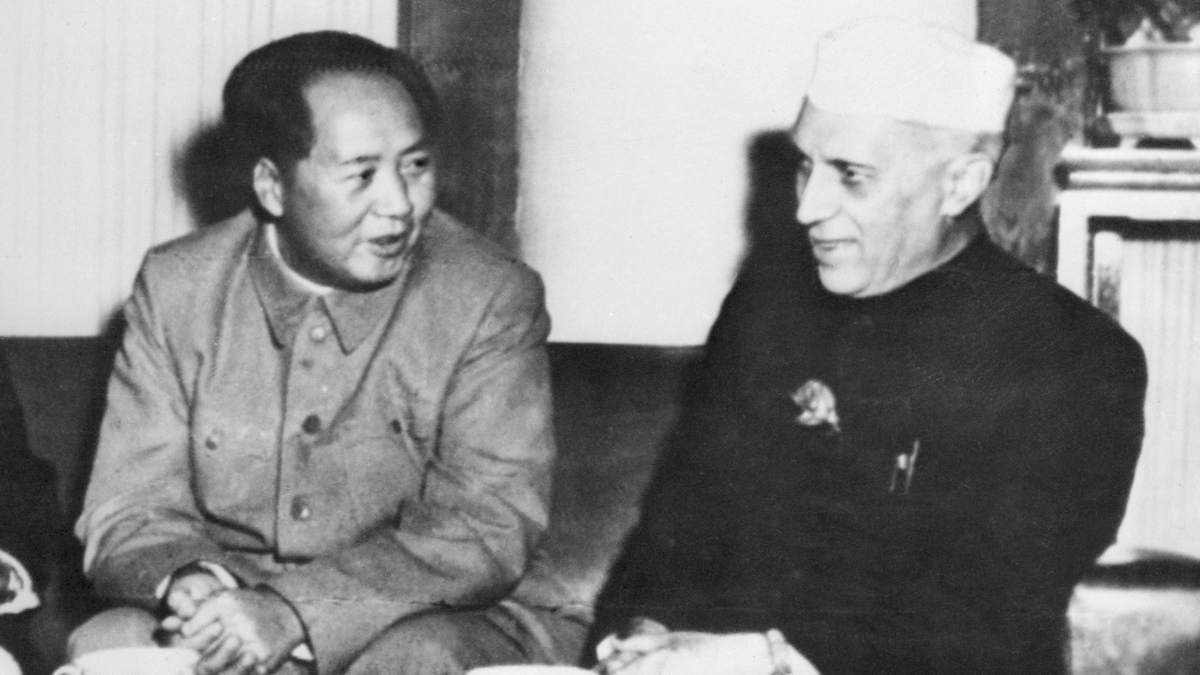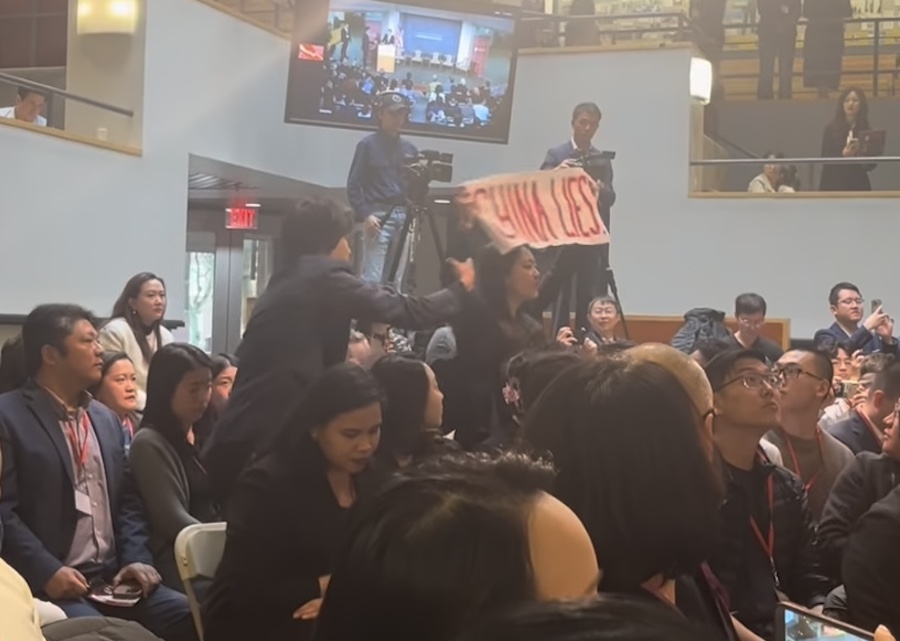By Tenzin Lhadon
He who holds Tibet dominates the Himalayan piedmont; he who dominates the Himalayan piedmont threatens the Indian subcontinent, and he who threatens the Indian subcontinent may well have all of South Asia within his reach, and with that, all of Asia -George Ginsburg and Michael Mathos
Mao employed a strategic ingenuity in terms of looking at Tibet as the backdoor for China’s expansion and dominance in Asia. On the other hand, some of India’s elite still consider it as a buffer zone between India and China. This difference in approach to the Tibet issue has become the crux of the Sino-India rivalry. Both India and China are increasingly aware of the geostrategic importance of Tibet and the intimate connection their strategic interests has with Tibet. If Tibet is a designated “core issue” in Beijing’s national interest, it is equally vital to Indian national security. Tibet thus presents itself, even today, as the central to the Sino-Indian conflict. However, given the asymmetric nature of India-China relations, the Tibet issue in Sino-India relations has been consciously pushed towards the shadows of the diplomatic corridors between the two nations.
The recent Galwan incident is thus the resultant lack of India’s failure to assess the enormous importance of the role of Tibet in Sino-India relations. Although India and China are not waging open war (which the two cannot afford to do so in a nuclear age), we see their conflicts have reached a new level, which is unprecedented. Scholars can interpret and explain in many different ways as to why and how these conflicts escalated and more importantly, the reason behind the recurring nature of the conflict. On a surface level, the border issue is seen as a dominant factor, but the motivating factor and sometimes the primary reason behind Sino-Indian strategic rivalry in inner Asia and the Himalayas is Tibet, as Beijing pointed out during Rajiv Gandhi’s visit to China. As Tibet looms large in Sino-Indian relations and politics, even after 60 years of Chinese occupation, the two stakeholders approach the Tibet issue according to their own strategic interest.
Historically, India and China has had minimal understanding of each other, pertaining to their limited interactions due to which both the parties have poor understanding of the psyche and system of the other. This lacuna between China and India has been critical in understanding and approaching Tibet in their own terms, thereby later deciding the political fate of Tibet according to their interest. The fallout of such miscalculation has been profound, and became intractable with the border issue determining the overall relations between India and China.
The border issue and the mutual distrust and hostility thereafter stems from their respective colonial heritage and more importantly because of the ambiguity and obscurity of British India’s stand over the status of Tibet. On the one hand, the British saw the importance of trade in terms of regional border (Arunachal and Ladakh) while at the same time were involved in trying to fan off Russian influence in Central Asia. On the other hand, Britain simultaneously tried to appeal to the Qing dynasty and the National government by accepting their ‘suzerainty’ over Tibet. This ambiguity over Tibet was a policy inherited by Nehru, evident in his acquiescence to the CCP’s claim that their occupation of Tibet was an internal matter of China but at the same time acknowledging that there was a problem for Tibetans in Tibet in terms of their freedom. This ambiguity and uncertainty continues to drive India’s policy towards Tibet vis-a-vis China. For instance, in 2003 the Vajpayee government acknowledged that Tibet was part of China, but every time there is a problem in the border area, they historically refer to the Simla agreement, which was signed by Tibet and British India and was not recognized by China. It is not about the specifics of the policy but the nature of the policy, which remains ambiguous. The ambiguity over the political status of Tibet was a calculative measure under British India and it was the same under Nehru as well. The new independent Republic of India under Nehru continued this policy that has far-reaching implications which Nehru probably failed to comprehend.
Moreover, the border issue is the direct reflection of the validity of an independent Tibet, with a bona fide treaty making power that has significantly exposed the deep rooted insecurity between India and China. This not only question China’s legitimacy over Tibet but more importantly reflects China’s obduracy on the border issue with India and its intransigence on Tibet at present. Beijing also wants to deny India’s use of the Dalai Lama, both as an added bargaining chip and as a living testament to Indian claim on its borders, as noted by Dawa Norbu. The mutual suspicion and distrust between India and China after the 1962 clash has further added to this insecurity. Likewise, the insecurity on Tibet became worse after the Tibetan issue was internationalized, garnering huge support for its cause earning pockets of diplomatic influence. This led Beijing to be oversensitive and often engage in diplomatic retaliation. Hence, Tibet plays an integral role in the modern history of Sino-Indian relations. However, the centrality of Tibet in the dynamics of Sino-Indian relations and politics from 1950 has been reduced to political inferences, either as a bone of contention between India and China or an ‘irritant factor’.
In fact, Tibet in Sino-India relations has suffered from Nehru’s idealism and traditional realist outlook under current system. Therefore, India continues to downgrade the role of Tibet in its relationship with China, thereby avoiding the political potential of the Tibet issue. However, the contrary view of Tibet’s centrality to the India-China conflicts has gained a rare audience in Indian scholarship with a handful of them including Prof. Srikanth Kondapalli of Jawaharlal Nehru University admitting that as long as the Tibet issue is not resolved in favour of China, the border dispute will continue to destabilize India-China relations. In fact, it is an indictment of India’s policy that unlike China, it pretended that Tibet was not a factor in Sino-India relations. The optimism in Sino-India relations on the growing economic ties coupled with studied diplomatic silence that suited the interest of both has led to marginalization of Tibet in Sino-India conflict. This has practically done no good to both the parties in improving their relations since the Sino-India relations is becoming more fragile rather than the opposite. The rivalry that is embedded with insecurity, mistrust and repeated miscalculation and marginalization of the role of Tibet need to be revisited, readdressed and redefined in Sino-India relations.
(Views expressed are her own)
The author is currently a visiting fellow at the Tibet Policy Institute (TPI), a think tank under the Central Tibetan Administration. She has completed her PhD from Jawaharlal Nehru University (JNU).











4 Responses
An eye opener for the present generation as well as for the Government in power which definitely needs an urgent re-look to understand its gravity, future implications besides to seek a long term and a permanent solution. Hats off to the author for a proper perspective of this burning issue.
Nehru’s Tibet policy was greatly influenced by his two socialist and Marxist-oriented friends: Panniker, India’s Ambassador to China, and K. Menon. Long suffered under British colonialism, they placed a high hope of getting China’s cooperation and solidarity to challenge the Western imperialism but were disillusioned in 1962, when China attacked India.
K.Menon had very low opinion of and regard to Tibetan people. In his collected works entitled as “K. Menon in International Affairs”, Menon mentioned that .. “Tibetans brought dirt and disease and they are not fit even for road construction.”
It’s interesting that people like Kondapalli are churning up pro-China garbage under the garb of academic discourse. The fact of the matter is Pandit Nehru and his Foreign Secretary VK Krishna Menon sold Tibet to China by accepting Chinese “sovereignty”. As if this was not enough, Atal Behari Bajpai went to Beijing in 2003 and “recognised” Tibet as “part of” the PRC in return for China’s recognition of Sikkim as part of India!
The colonial British Government never accepted Tibet as part of China or Chinese sovereignty over Tibet. They were hard nosed strategists and they zealously guarded India from the Chinese as well as Czarist Russia by keeping them at bay. It only recognised on 29th of October 2008 just before the last Sino-Tibet talks by David Miliband who was then the British Foreign Secretary.
Indian Independence was a tragedy for Tibet. Were the British ruling India today, Tibet would still be an independent nation. The British were much smarter than their Indian counterparts. Indian leaders like Nehru and Menon were swept by the tide of communism and were strong communist sympathisers. They were anti-colonist and anti-capitalists. So, the Chinese communists and their Indian sympathisers dreamt of a grand coalition of anti-colonist and anti-capitalist block and forced India to accept Chinese claims over Tibet. Nehru was full of idealism and was squarely in the pocket of communist China. He interpreted that all the rights British India had in Tibet were colonial instruments and gave up everything including Tibet in the believe that the Chinese will live up to their promises and pledges of friendship which was then peddled as Hindi-Chini-Bhai-Bhai!
India’s policy has been to totally sacrifice Tibet in order to cozy up with communist China. What has India done for Tibet in the last six decades except giving asylum to the Dalai Lama and 80,000 followers? NOT A THING!!!!
Throughout the 1950s,60s,70s, 80s and 90s, India was supporting China and Pakistan when the human rights issue in Tibet came up in the United Nations. India has done more harm to Tibet in the UN than any other country because India always acted on China’s behalf and belittled any Tibet related issues by claiming, it will be dealt by the concerned parties. The countries then concluded that if it doesn’t bother India who has the highest stake in its national security, so be it attitude.
There was another guy called SD Muni (who I assume is also from JNU) who also wrote a similar piece in the Indian Express which advocated that India should revisit its Tibet policy since its a “core irritant” between the two countries. He goes onto state that since the Tibetan administration has “not provided any clear support for India’s claims in the Himalayas, India should politely explore the possibility of relocating the Tibetan political Administration to a suitable location in Europe, Australia/New Zealand or the US”!!!!!!!
This is how the Chinese are buying so called academics and journalists to peddle disinformation to change public opinion.
The fact is according to the Indian Government stance, there no issue of Tibet as China demanded. India sold Tibet lock, stock and barrel for Sino-India detente. The Dalai Lama was received as a guest and not as a refugee in order to suit Chinese demands. Nehru told China that accepting the Tibetans fleeing Tibet was an internal affair of India.
So, I would say to Prof Kondapalli and his ilk even if you send the Tibetans in India to a gas chamber and eliminate them like Hitler did, India’s problem with China will persist. Next, you will have to give up whole of Arunachal Pradesh, otherwise China will continue to harass you and you know it. Are you and your ilk going to give Arunachal Pradesh to China to buy peace as well
John F Kennedy once said, “Ask not what your country has done for you, but what you have done for your country”. So, my question for this author is very simple, “ Ask not what world has done for Tibet, before asking what Tibet has done for the world”. It is fair to talk about injustice but it is not fair to blame your neighbour for values you never carried.